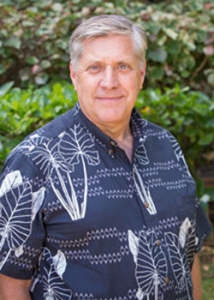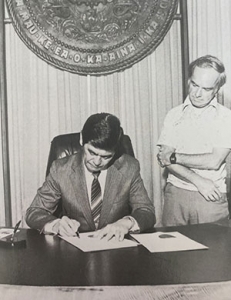This year marks the 50th anniversary of the University of Hawaiʻi Cancer Center. The UH Cancer Center has proven itself to be an invaluable asset to the state since its founding in 1971. The center has made seminal discoveries in the areas of cancer biology, epidemiology, cancer prevention and treatment, and contributed to the advanced health care for thousands of cancer patients to gain access to the most innovative and latest clinical trials at home in Hawaiʻi.

The UH Cancer Center is driven by its mission to reduce the burden of cancer through research, education, improved patient care and community outreach with an emphasis on the unique ethnic, cultural and environmental characteristics of Hawaiʻi and the Pacific. Now in its 25th year of continuous designation by the National Cancer Institute, it has earned its place as one of the leading cancer research institutions in the world.
“I’m proud of the achievements the UH Cancer Center together with our researchers, staff and our partners have reached in this half century of our existence,” said UH Cancer Center Director Randall Holcombe. “Cancer research has come a long way to improving the survival and the quality of life of our patients and their families. As we look toward the future, we will continue to develop new strategies for discovery, drive findings into clinical practice, and deliver the best possible outcomes when patients are faced with the prospect of treatment for cancer.”
Then and now

The UH Cancer Center is an organized research unit within UH Mānoa that was originally part of the Pacific Biosciences Research Center before it was established as its own independent research institute by the UH Board of Regents in 1971.
Its state-of-the-art facility, now located in Kakaʻako, was completed in 2013, and is home to 300 research faculty and staff, including some of the nation’s leading cancer experts. In addition, another 200 affiliate members are engaged with the UH Cancer Center through the Hawaiʻi Cancer Consortium, a unified effort in clinical cancer research benefiting the people of Hawaiʻi and the Pacific Rim.
Since 2016, 16,623 participants have been enrolled in cancer clinical trials through the UH Cancer Center, and currently more than 100 research projects in its two research programs, Population Sciences in the Pacific and Cancer Biology are being conducted.
Serving Hawaiʻi and the Pacific

UH Cancer Center researchers focus on key cancer types that significantly impact communities in Hawaiʻi and the Pacific. Yet just as importantly, their work contributes to a global body of knowledge that leads to the development of innovative cancer prevention and control strategies, as well as novel life-saving therapies and interventions for all types of cancers.
Since 1993, the Multiethnic Cohort (MEC) Study, the largest and most ethnically diverse epidemiologic cancer study of its kind with 215,000 participants from Hawaiʻi and California, has collected data to investigate the roles that lifestyle, diet, and genetics play in cancer and other chronic diseases.
The center also engages in scientific collaborations on a national and international scale, ranging from clinical trials and other research conducted across the U.S. to partnership programs and research collaborations in Guam, the U.S. Affiliated Pacific Islands, Australia, Asia and Europe.
Innovative training opportunities

As the central cancer education and training hub for Hawaiʻi and the Pacific, the UH Cancer Center provides innovative training and mentorship opportunities for individuals at every age and stage of their career. Two new education initiatives were successfully kicked off in 2020: the CREATE program and the Clinical Research Professionals Certificate Program.
Other key research initiatives include the development of an Early Phase Clinical Research Center (EPCRC) and an Organoid Generation Facility. The EPCRC will allow cancer patients to participate in Phase I trials without having to travel to the mainland. The organoid facility will provide a vital resource to the study of cancer in minority populations with significant cancer disparities.
Throughout 2021, look out for more on the UH Cancer Center as it reflects on 50 years of progress and looks toward the next 50 years to bring forth even more innovations in research and cancer care.

